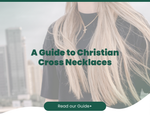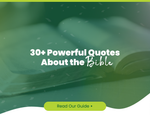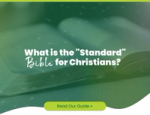Fairtrade and the church: is it fair enough?
Lynn Williamson
After more than a decade of Fairtrade, has the movement which set out to change lives and livelihoods for the better even come close to achieving its goals? There is a growing range of ways in which ethically-sourced products are labelled on supermarket shelves. How can we be sure we are doing the best by the producers of those goods?
Fairtrade status
Across the UK, churches, schools, and in some cases even whole towns, have achieved Fairtrade status. This means that they have made a commitment to using Fairtrade products in preference to ‘conventional’ alternatives, and that they have pledged to promote the cause of Fairtrade.
But even as the Fairtrade label spreads, from tea bags and chocolate bars, to pieces of clothing and bunches of flowers - alternative ‘ethical’ labels continue to appear, offering their own promises of a better world. And at the same time, some are asking if the Fairtrade label is really a guarantee of fair treatment of, and fair wages for, global workers.
Although the concept of treating workers fairly is not exactly something new, the independent Fairtrade product labelling scheme didn’t get started until 1988, when the first ‘Fairtrade’ coffee began to appear on supermarket shelves in Holland.
Within a few short years, the idea had caught hold, as consumers began to realise that many of their favourite brands had failed to treat their workers well. As concerned citizens made their feelings heard, and demand change, Fairtrade marks began to appear in a number of wealthy countries. The marks, which were given only when ethical claims could be independently verified, became understood as a way of guaranteeing that products weren’t the result of exploitation.
As society began to promote the importance of ensuring that consumption didn’t come ‘at any price’ - the concept of Fairtrade really began to take hold.
Fast forward a few more years, and the Fairtrade mark has become an internationally recognised label which serves to reassure consumers that their purchase is something which has been produced in accordance with certain strict criteria.
Growth of retail sales
By 2001, the retail value of annual Fairtrade sales, was put at £30 million, and towns across the country had begun to apply for, and achieve Fairtrade status. Within five years, 1000 congregations had been accepted as Fairtrade churches. By 2009, following extensive lobbying, chocolatiers Cadbury had bowed to pressure and committed to ‘going Fairtrade’, an ambition realised two years later, when Dairy Milk bars were allowed to carry the label. In 2011, the retail value of annual Fairtrade sales had reached an estimated £1.3 billion.
But what does it mean for a product, or a brand to be ‘Fairtrade’ – how can consumers distinguish between this and other ‘ethical’ labels, and perhaps most importantly, is Fairtrade actually fair enough?

The essential concept underlying Fairtrade, is that of guaranteeing reasonable payment for producers. The spectacle of workers in developing countries toiling at difficult and unpleasant tasks for little or no reward has become a constant spectre at the feast of contemporary society.
This spectre has haunted Christians in particular, who, mindful of the command to ‘love thy neighbour’ have been vocal in challenging unjust trade.
Impact of Churches
Indeed, it is the Christians who have helped ensure that the UK has the most vibrant Fairtrade economy in the world.
Barbara Crowther of the Fairtrade foundation said: “It’s fair to say that Fairtrade wouldn’t be where it is today, if it wasn’t for the action of the churches. Not only were Christian groups active in the setting up of Fairtrade International, the church has been at the heart of local Fairtrade awareness raising, and it continues to be so. The churches have been central to the development of the Fairtrade movement. Of course today it is not just supported by the churches, but by other groups too – including Jewish and Muslim groups.
“But the reason Fairtrade has taken off in the UK, which it has done more than in any other country in the world, is down to the churches. The impact of social justice thinking in Christian theology has been central to the morality of Fairtrade, and the active campaigning that takes place on issues of social justice has helped create a climate that Fairtrade can flourish in.”
But critics point to numerous problems with Fairtrade, including confusion on the high street, where a growing array of labelling which denotes ethical trading procedures have been followed is visible.
Rainforest Alliance
One major label is that belonging to the Rainforest Alliance, an International non-profit organisation set up to achieve two things - conserve biodiversity and ensure sustainable livelihoods.
This aim is achieved by ensuring that products carrying the Alliance's little green frog logo, are produced in accordance with a set of regulations which aim to ensure the transformation of land-use practices, business practices and consumer behaviour.
Rainforest Alliance certified Coffee account for 2% of the world's entire crop – and the organisation say they certify 15% of the world's bananas.
Stuart Singleton White of the Rainforest Alliance said that he felt rather than looking at things in terms of competition, organisations such as the Alliance, and Fairtrade were more like co-workers: "We do not see ourselves in competition with other credible certification schemes such as Fairtrade. If anything the worlds needs more, much more, certification. And that expansion, taking certification to the scale needed, means that there is still much work to be done for both the Rainforest Alliance and Fairtrade," he said.
"We believe that the best way to keep forests standing is by ensuring that it is profitable for businesses and communities to do so.
"That means helping farmers, forest managers and tourism businesses realize greater economic benefits by ensuring ecosystems within and around their operations are protected, and that their workers are well-trained and enjoy safe conditions, proper sanitation, health care and housing.
"Once businesses meet certain environmental and social standards, we link them up to the global marketplace where demand for sustainable goods and services is on the rise.
"In common with Fairtrade we share many of the objectives of providing better value and income to farmers and communities in the developing world."

Multiple brands
Indeed many brands are now beginning to carry multiple labels - Clergy shirt manufacturers Reliant have begun to convert their range of shirts to certified Organic and Fairtrade cotton, and brands like Café Nueva coffee have achieved triple certification, with Fairtrade, Organic and Rainforest Alliance symbols on their jars.
But is this success in fact counter-productive? As Fairtrade has gained a stronger foothold in the UK, with mass market brands like Cadbury, and Nestlé – long the bête noir of ethical production campaigners – bringing out certified products, critical voices have made themselves heard.
In 2008, the pro-free market Think Tank, The Adam Smith Insititute published a report called 'Unfair Trade' which claimed that Fairtrade was skewing the market, and actually disadvantaging farmers who were unable to get certification.
The report went on to claim: "Fairtrade not only disregards the poorest, it makes their condition worse by requiring that certified farms do not hire permanent full-time employees, reducing hired labour opportunities to infrequent seasonal work where wage levels are hard to monitor and may be illegally low."
With certification costs coming in at anywhere up to €4000, it's easy to understand why many larger farming bodies can afford to get accreditation, while smaller, subsistence level farmers cannot.
But the Fairtrade foundation say that in fact they were never established to work directly with the very poorest communities, their aim has always been to engage with communities who are disadvantaged in terms of international trade.
Barbara Crowther explained: "As far as working with the poorest regions of the world, one of the things people have to understand is that we're here to work with people who are disadvantaged in terms of engaging in international trade. We're not here to work with subsistence farmers, but with people who are already trying to engage in international trade.
"However, we're trying to expand Fairtrade to the poorest countries, including post conflict areas, like Afghanistan, and Congo.
"We currently certify cotton in Mali, which is a very poor country, six out of ten children there don't go to school – we work in places like Malawi too, But this is what Fairtrade was set up to do, not to work directly with subsistence farmers – this is not supposed to be a panacea, it's a contribution, no single intervention is enough, we need to work on many levels.
"What Fairtrade does, is it gives ordinary people a chance to make a difference – the difference may only be small, but by building recognition of the issue, we will make it bigger."

Assessing the impact
Aside from questions of whether 'free' or 'fair' trade is the best model to achieve poverty relief, there are other questions over the impact that Fairtrade has.
The UK is the biggest market in the world for Fairtrade, and according to a survey carried out in 2011, up to six out of ten British shoppers would choose a Fairtrade alternative to their usual purchase, if it was available. However, figures show that consumer spending on Fairtrade products only amounts to approximately £17 per person.
And while market share remains this low, Fairtrade is necessarily limited in the scope of what it is able to achieve in terms of poverty alleviation.
Barbara Crowther agrees with this – although her view is less fatalistic: "Critics say that Fairtrade is too small, our response to that is 'let's make it bigger' – the more we can get people buying Fairtrade products the better.
"Fairtrade may not be perfect, but it is pragmatic – it's about incremental day by day change, and everyone having the opportunity to make a difference."

1 out of 4: pounds spent on Fairtrade products, are spent in Sainsburys.
2 out of 3: people understand that the Fairtrade symbol means a better deal for farmers and workers.
Latest Blogs

Gifts
Finding Your Symbol of Faith: A Guide to Christian Cross Necklaces
Looking for the perfect symbol of faith? Explore our guide to Christian cross necklaces, from rustic wooden designs and sturdy men's chains to elegant silver pendants.

Gifts
The Best Christian Gifts for Under £20
Looking for a meaningful gift that won't break the bank? Explore our guide to the best Christian gifts under £20, from inspiring journals to beautiful home decor.

Gift Guide
15 Confirmation Gift Ideas for Boys and Girls
Celebrating a confirmation? Discover 15 meaningful gift ideas for boys and girls, from youth Bibles and jewellery to inspiring journals and keepsakes.

Bible
30+ Powerful Quotes About the Bible (For Inspiration in 2026)
Looking for inspiration? Discover a curated collection of the most powerful quotes about the Bible, from famous historical figures to modern theologians and Scripture itself.

Bibles
What is the "Standard" Bible for Christians?
Is there an "official" Bible that all Christians use? We explain the difference between the NIV, KJV, and ESV, and help you find the standard text for your church or personal reading.

Bible
"I Keep Failing to Read the Bible" – 5 Tips to Make the Habit Stick
Do you start a Bible reading plan only to quit a few weeks later? Stop the cycle of guilt. Here are 5 psychological tips and practical changes to help you build a Bible habit that actually lasts in 2026.
